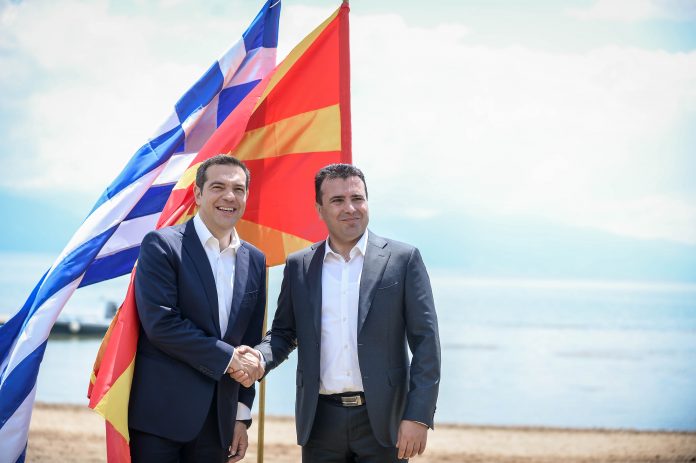“Today is a very good day”, said the European Union’s High Representative/Vice-President Federica Mogherini on June 17. She was referring to the signing ceremony of the agreement on the name issue between the prime ministers of Greece and the former Yugoslav Republic of Macedonia (FYROM).
“First of all, it is a very good day for the two countries; but we are here, Commissioner Johannes Hahn and myself, to say it is also a very good day for the European Union, for Europe as such, for the Balkans,” said Mogherini.
“It is indeed a historic day. I remember very well the first steps of these negotiations with the two prime ministers, the two foreign ministers and I would like to thank them on our behalf for the hard work they have done.
“I think that this agreement shows the way to Europe, to the rest of the world that any problem, any issue is solvable in a positive manner through leadership, courage and dialogue. And indeed this is a very good day for all of us,” she added.
As reported by Deutsche Welle (DW), Germany’s international broadcaster, the preliminary accord signed on June 17 aims to end a decades-long name dispute.
Greek Foreign Minister Nikos Kotzias and his FYROM counterpart Nikola Dimitrov signed the deal, which will see FYROM renamed as the Republic of North Macedonia, in the border region of Prespes.
The deal, which has been protested by hardliners on both sides of the border, must now be ratified by the respective parliaments, and will also be put to a referendum in FYROM. The process will take months, reported DW.
At the ceremony, Greek PM Alexis Tsipras described the signing as a “brave, historic and necessary step for our peoples”.
“We are here to heal the wounds of time, to open a path for peace, fraternization and growth for our countries, the Balkans and Europe,” he said, adding that the time had come again “to sing happy songs in the Balkans”.
FYROM’s PM Zoran Zaev called on the two countries to “step out of the past and look to the future,” saying: “Our peoples want peace … we will be partners and allies.”
For 27 years, Athens has objected to FYROM calling itself Macedonia because it has a northern province of the same name where the king Alexander the Great was born, a figure who represents a source of pride for many Greeks of the present day.

